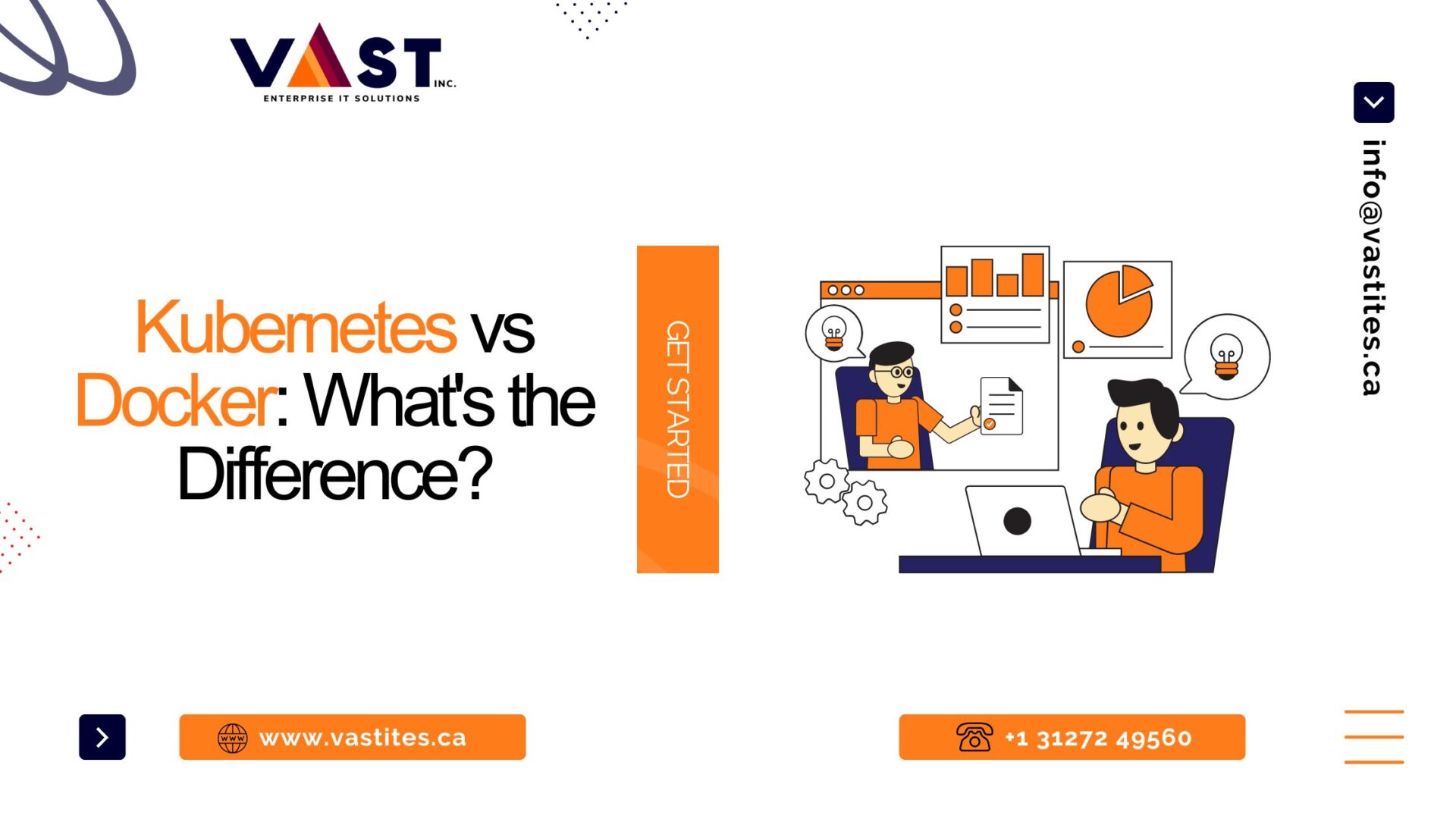
When diving into the world of containerization and cloud-native applications, two names often surface: Kubernetes vs Docker. Although closely related and often mentioned together, they serve different purposes in the container ecosystem. Understanding the differences between Kubernetes and Docker is crucial for making informed decisions about your infrastructure and deployment strategies.
What is Docker?
Docker is a platform designed to simplify the process of creating, deploying, and running applications in containers. Containers are lightweight, standalone packages that include everything needed to run a piece of software: code, runtime, libraries, and system tools. Docker makes it easy to package and ship applications consistently across various environments.
Key Features of Docker
- Containerization: Docker allows developers to package applications into containers that are portable and consistent across different environments.
- Docker Engine: The core part of Docker that runs and manages containers.
- Docker Hub: A repository where developers can share and download Docker images.
What is Kubernetes?
Kubernetes is an open-source container orchestration platform that automates the deployment, scaling, and management of containerized applications. Originally developed by Google, it is now maintained by the Cloud Native Computing Foundation (CNCF). Moreover, Kubernetes is specifically designed to manage clusters of containers at scale.
Key Features of Kubernetes
- Orchestration: Kubernetes automatically handles the deployment and scaling of containerized applications across a cluster of machines.
- Load Balancing: It distributes network traffic to ensure that no single container gets overwhelmed.
- Self-healing: Kubernetes can automatically restart or replace failed containers, ensuring that the application remains available.
- Service Discovery: Kubernetes provides built-in mechanisms for discovering and connecting with other services within a cluster.
Docker vs. Kubernetes: The Core Differences
While Docker and Kubernetes are often used together, they are not interchangeable and serve different roles in the container ecosystem.
Scope
- Docker: Focuses on containerization, which involves packaging applications into containers.
- Kubernetes: Focuses on orchestration, which involves managing and scaling containers in a distributed environment.
Functionality
- Docker: Provides the tools to create and run containers on a single host.
- Kubernetes: Manages a cluster of containers, ensuring high availability and scalability.
Ease of Use
- Docker: Easier to start with, especially for developers who want to containerize applications quickly.
- Kubernetes: More complex to set up and manage but essential for running applications at scale.
Community and Ecosystem
- Docker: Has a vast ecosystem with Docker Hub as a central repository for images.
- Kubernetes: Has a rapidly growing ecosystem with numerous third-party tools for monitoring, logging, and security.
Can Kubernetes Replace Docker?
A common misconception is that Kubernetes can replace Docker. However, Kubernetes is not a direct replacement for Docker; instead, it serves as a complementary technology. While Docker handles the creation and management of containers, Kubernetes, on the other hand, orchestrates those containers across a cluster of machines.
Kubernetes often uses Docker as the container runtime, meaning Kubernetes manages and orchestrates Docker containers. However, Kubernetes can also use other container runtimes, such as CRI-O or containerd.
Docker Swarm vs. Kubernetes
It’s also worth mentioning Docker Swarm, Docker’s native orchestration tool, which is often compared to Kubernetes.
Docker Swarm
- Integration: Integrated into the Docker platform, making it easier to use with Docker.
- Simplicity: Easier to set up and manage compared to Kubernetes.
- Scalability: Less powerful in terms of features and scalability compared to Kubernetes.
Kubernetes
- Complexity: More complex to set up and manage but offers greater flexibility and control.
- Scalability: Better suited for large-scale applications requiring advanced features like auto-scaling and self-healing.
When to Use Docker vs. Kubernetes
Use Docker when
- You are in the development phase and need to quickly create and test containerized applications.
- You want to run containers on a single machine or in a small, simple setup.
Use Kubernetes when
- You need to manage a large number of containers across multiple hosts.
- You require features like load balancing, scaling, and self-healing.
- You are running production-grade applications that need to be highly available and scalable.
While Docker and Kubernetes are distinct tools with different purposes, they are both essential components of modern cloud-native application development. Docker simplifies the creation and management of containers, while Kubernetes provides the orchestration needed to manage those containers at scale. Understanding the differences between the two will help you choose the right tool for your specific needs.
